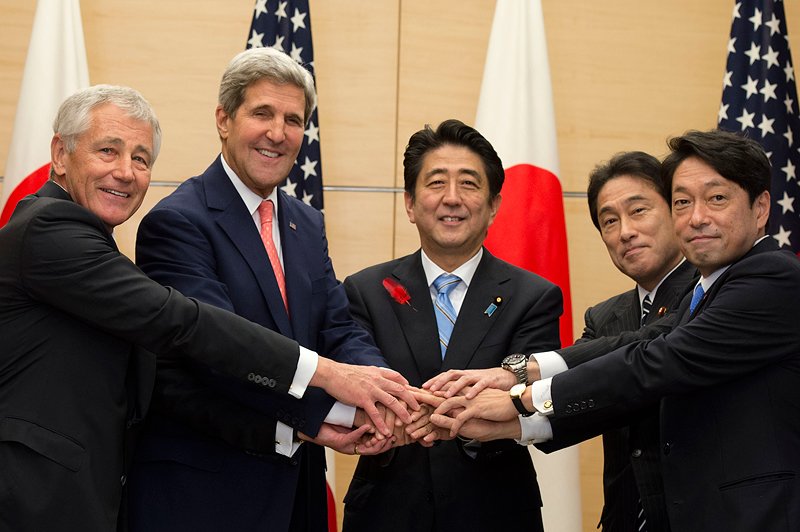(Published in JURIST – Forum, Sept. 2, 2015)
 On August 30, tens of thousands of Japanese citizens demonstrated outside of the Diet (parliament), and in other cities across Japan, protesting against draft national security legislation that would expand the permissible operations of the Self-Defense Forces (SDF). The bills are the culmination of an effort by Prime Minister Shinzo Abe to expand Japan’s role in international collective security efforts. To do so, however, the government has sought to “reinterpret” Japan’s constitutional limits on the use of military force, in a manner that circumvents the formal constitutional amendment process, and thereby undermines the rule of law and constitutionalism in Japan.
On August 30, tens of thousands of Japanese citizens demonstrated outside of the Diet (parliament), and in other cities across Japan, protesting against draft national security legislation that would expand the permissible operations of the Self-Defense Forces (SDF). The bills are the culmination of an effort by Prime Minister Shinzo Abe to expand Japan’s role in international collective security efforts. To do so, however, the government has sought to “reinterpret” Japan’s constitutional limits on the use of military force, in a manner that circumvents the formal constitutional amendment process, and thereby undermines the rule of law and constitutionalism in Japan.
It is this process as much as the substance of the bills that has provoked the protests and triggered a constitutional crisis in Japan. Yet these developments have been largely welcomed in US policy circles. The objectives may be in America’s short-term interest, but a deeper understanding of the issues and a longer-term perspective would caution against US endorsement of this illegitimate process.
Constitutional Background
To understand the issues one has to begin with the constitutional limits. Article 9 of the constitutionrenounces war as a sovereign right of the nation, and the threat or use of force for the settlement of international disputes (Art. 9(1)). It also prohibits the maintenance of armed forces or other war potential (Art. 9(2)). These provisions have been consistently interpreted by the Cabinet Legislation Bureau (CLB) (which is loosely analogous to the US Office of Legal Counsel) and successive governments since the early 1950s, as meaning that Japan was entitled to use force for individual self-defense in the event of an armed attack on Japan; and that Japan was thus entitled to maintain a minimum level of armed forces necessary for such defense. This understanding was also implicitly confirmed by the Supreme Court in the Sunagawa decision, the only decision it has rendered on the issue. But the CLB has also clearly maintained that Art. 9(1) means that Japan is prohibited from any participation in collective self-defense as authorized by Article 51 of the UN Charter, or other collective security operations as authorized by the UN Security Council under Articles 39 and 42 of the UN Charter.
